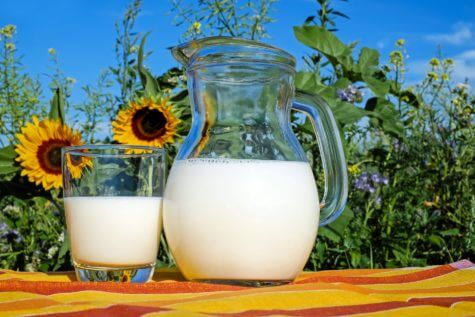HOUSTON — Worried that using whole milk in your latte instead of the less-delicious and supposedly healthier nonfat kind will take years off your lifespan? You can calm those fears: a new study finds that consuming full-fat dairy products — including cheese, yogurt, and butter — likely won’t play a role in sending you to the grave any sooner.
Researchers from The University of Texas Health Science Center at Houston say that not only are dairy fats not linked to the development of heart disease or stroke, it turns out they may actually help prevent people from suffering a severe stroke.

“Our findings not only support, but also significantly strengthen, the growing body of evidence which suggests that dairy fat, contrary to popular belief, does not increase risk of heart disease or overall mortality in older adults,” says Marcia Otto, the study’s first author and an assistant professor in the Department of Epidemiology, Human Genetics and Environmental Sciences at the university, in a media release.
For the study, the authors recruited 2,907 adults over 65 in 1992 who had no history of cardiovascular disease. Researchers took blood samples from the participants and measured for plasma levels of three different fatty acids found in dairy products. Samples were taken again after six years, and at 13 years from the start of the study. The method is believed to be the first of its kind when compared to similar studies, which typically instead relied on self-reported consumption of dairy products during the study period.
A final follow-up 22 years from the initial session examined the health outcomes of participants. By that point, 2,428 individuals had passed away, including 833 from cardiovascular disease, the rest from other causes unrelated to heart ailments. The authors determined that none of the fatty acids they measured for had any notable link to participants’ deaths. Instead, they found that perhaps whole milk products may actually be more of a help, rather than a harm.
“In addition to not contributing to death, the results suggest that one fatty acid present in dairy may lower risk of death from cardiovascular disease, particularly from stroke,” says Otto.
That fatty acid, known as heptadecanoic acid, led the researchers to conclude that people who show higher fatty acids levels — particularly from full-fat dairy products — had a 42 percent lower chance of death due to a stroke.
Otto says the study should give consumers more confidence in purchasing products that have been banned from many shopping carts for years. She notes that low-fat products often compensate for the diminished flavor by adding more sugar, which could lead to numerous conditions.
“Consistent with previous findings, our results highlight the need to revisit current dietary guidance on whole fat dairy foods, which are rich sources of nutrients such as calcium and potassium,” says Otto. “These are essential for health not only during childhood but throughout life, particularly also in later years when undernourishment and conditions like osteoporosis are more common.”
The full study was published July 11, 2018 in the American Journal of Clinical Nutrition.

How about 1% or 2% milk vs skim (0% fat) milk? After decades of skim milk in my morning cereal, whole milk once in a while, such as at restaurants, or hotels with breakfast buffets, almost makes me gag as if I am trying to drink half-and-half straight (vs a 1-2 teaspoons in my coffee, which dilutes it sufficiently while the h-n-h cuts down the coffee’s bitterness).